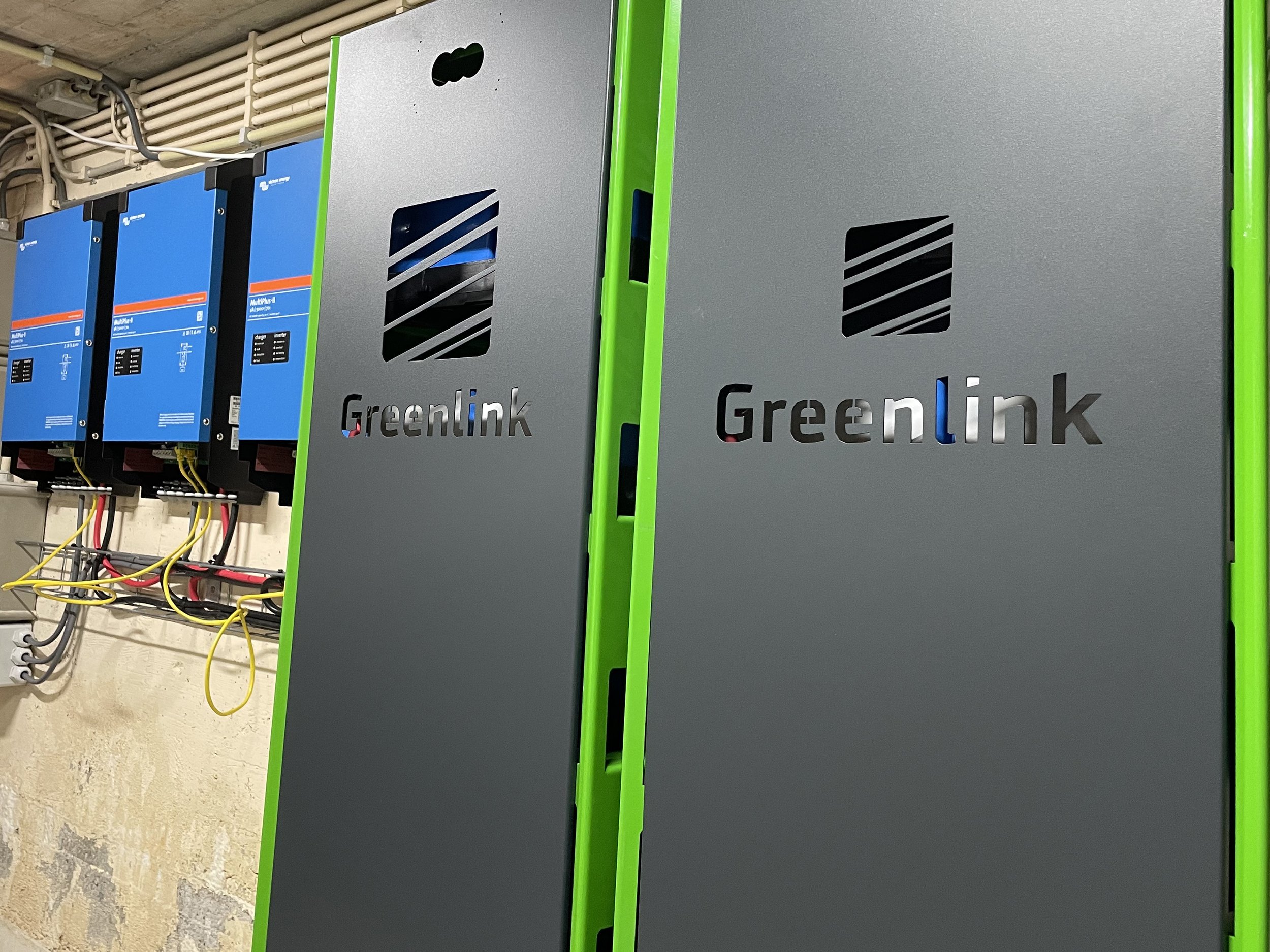
Battery Storage
Battery storage offers numerous advantages, including more efficient energy use, reliability of energy supply, grid stabilization, cost savings, and sustainability. It is a valuable technology that supports the energy transition and the move towards a more sustainable future
The advantages of battery storage can be summarized in the following points:
Efficient energy use: Battery storage allows users to store excess energy that is produced during periods of low demand or high production. This stored energy can then be used during peak times or when energy production is lower. This maximizes the use of renewable energy sources and reduces dependence on the power grid.
Reliability of energy supply: Battery storage can serve as a backup for the power grid, ensuring a continuous power supply, even during power outages or failures. This is especially important for essential services such as hospitals, data centers, and other businesses where uninterrupted power supply is crucial.
Grid stabilization: Battery storage can help stabilize the voltage and frequency of the power grid. It can respond quickly to fluctuations in electricity demand and supply, keeping the network balanced. This contributes to reliable and efficient operation of the power grid.
Cost savings: Battery storage can help reduce electricity consumption costs. It can store excess energy when the energy price is low and use it when the price is high. This allows users to take advantage of the price difference and lower their energy costs.
Sustainability: Battery storage contributes to a more sustainable energy supply. It enables more efficient use of renewable energy sources and reduces the need for fossil fuels. This contributes to the reduction of greenhouse gas emissions and the transition to a low-carbon society.

